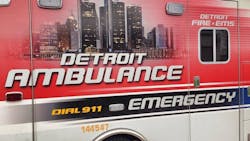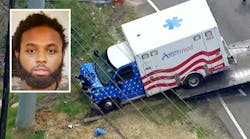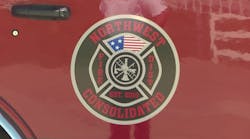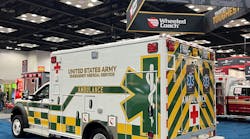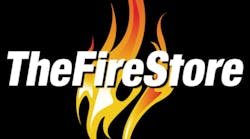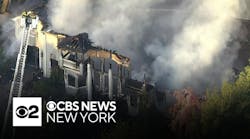The Detroit Fire Department is no longer using lights and sirens on all of its runs in a policy move that has drawn a rebuke from the city's firefighter union.
The Detroit News reports that the change, which went into effect last month and applies to all fire personnel, now classifies runs into two codes: one for emergent runs and the other for non-life threatening calls.
Crews previously responded to all calls with lights and sirens, but Fire Commissioner Eric Jones says that disregarding traffic signals and speed limits with lights and sirens activated on non-urgent dispatches is unnecessary and dangerous. The strategy is aimed at giving dispatchers and fire department personnel discretion on when to use lights and sirens.
"My job as Detroit fire commissioner is to make sure we're protecting property and saving lives," Jones said. "We cannot do that if every time we get a run, we go lights and sirens. It's foolish, and someone will get killed. The policy is tight, and it is good, and it makes sense. And we're going to save firefighters' and citizens' lives and reduce accidents because of it."
Under the new protocols, Code 1 responses that require lights and sirens include urgent or life-threatening emergencies such as structure and automobile fires, large grass fires with a threat of exposure, dumpster fires, fires inside a structure and mutual aid calls.
Code 2 responses require "immediate attention" but lights and sirens aren't necessary. A "go-easy" directive can be invoked by the first arriving companies so other crews can arrive safely. These calls include smoke outside a structure, odor or carbon monoxide calls inside a structure with no signs of sickness, downed wires without fire and other calls with no life threat or illness.
Code 3 applies to Detroit's EMS and is issued for non-life threatening emergencies. In those cases, units must comply with state and local traffic laws.
"It's time to move this department into the 21st century. This is happening all across the nation," said Jones, noting several major cities have similar policies. "It was the right thing to do, and I completely, wholeheartedly stand by it."
The change is not sitting well with Detroit firefighter union President Mike Nevin, who says the policy leaves too much room for error and could cause firefighters to be under-prepared to handle more critical cases. Nevin appeared Monday before City Council with demands that the new protocol "go away."
"The firefighters and the medics in the field know that there's no crystal ball in central office, and something that may sound non-emergent on the phone could be very emergent," Nevin said during the session. "What they are doing right now is something I'm not going to take a pass on."
